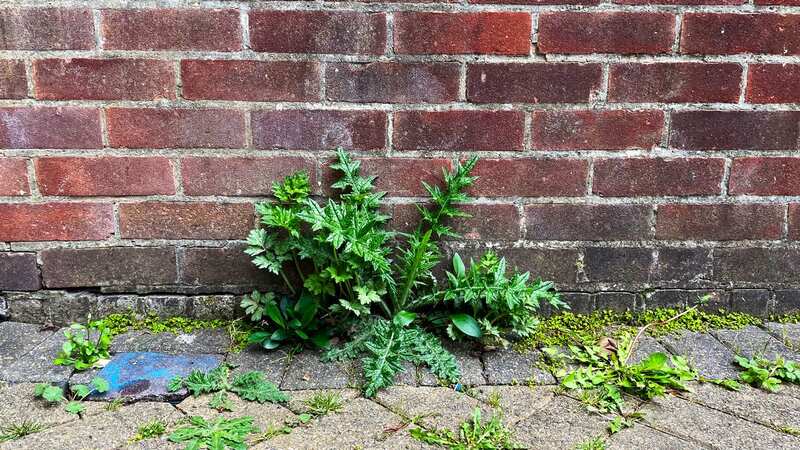'Effortless' 7p solution to kill garden weeds without using harmful chemicals

A gardening guru has shared her go-to trick to kill pesky garden weeds without using 'harmful chemicals'. Sharing her 'magic' solution on TikTok, home stylist Gina says you only need three ingredients to make it - and adding the costs together, you should only be spending around 7p per use.
In her video, she said: "Here's a trick to kill your weeds naturally and effortlessly. Combine 1l white vinegar, 3/4 cup of salt, and 3tbs of dishwashing liquid. Give it a good stir and spray it directly onto your weeds. Within days, they'll shrivel and die."
Gina, who is known as @stylecuratorau online, was praised in her comment section for sharing such a handy tip, with one user saying: "Thanks for sharing. I must try." While another user asked: "Does this work on onion weed? I can't kill the bulbs."
Read more: Sign up to Mirror US's SMS updates for the latest straight from the newsroom
However, others claim there's an even cheaper method than this - and it's just to cover the weeds in boiling water. One user said: "Or you could just pour boiling water on them." Another user added: "Boiling hot water does the tirck also." A third user said: "Just sprinkle salt on them."
 Gardening expert shares exact date when you should cut grass after winter
Gardening expert shares exact date when you should cut grass after winter
It comes after horticulturist David Domoney shared the house plants you should introduce to your bedroom to get a better night's sleep.
David, 60, said: "It is well known that many plants can help improve indoor air quality. They absorb pollutants through their leaves, roots, and with microorganisms in the soil filter out harmful compounds which build up in our homes and release clean oxygen."
He said: "This natural process helps reduce levels of carbon dioxide, increase humidity, and eliminate significant amounts of airborne pollutants, thereby improving the overall air quality within indoor environments. Plants contribute to indoor air quality improvement through a few of their natural processes."
His list includes Florist's Chrysanthemum, English Ivy, Peace Lily, Lady Palm, Snake Plant, Red-Edged Dracaena, Barberton Daisy, Aloe Vera and Weeping Fig.
Read more similar news:
Comments:
comments powered by Disqus

































